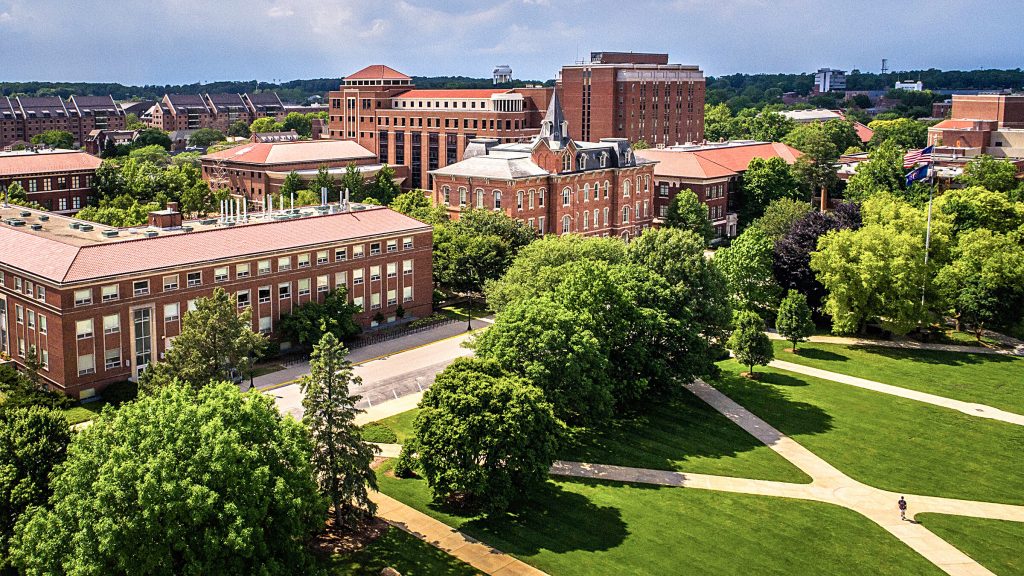
CUTTING-EDGE TECHNOLOGY TRANSFER ALSO ADVANCES FORENSIC SCIENCE
Purdue University was established in 1869. Two of its satellite campuses, Purdue Calumet and Purdue North Central, were combined in 2016 to form Purdue Northwest. Purdue proves that public schools overseas can compete with private institutions in supporting innovation and technology transfer. The triumph of the startup CBF Forensics further validates this fact.
CBF Forensics
“We are the first Purdue-sponsored startup to come from the Purdue University Northwest campuses. The two technologies listed in the press release were both developed at PNW and are the intellectual property of the Purdue Research Foundation (PRF). PRF licenses technologies developed in the academic setting to private companies where the academic work can have practical real-world value,“ says Charles Steele, the founder and president of CBF Forensics.
So there is a question: “How does it interfere with the function of the university?” This is a major concern with all research and not university activities. “As a Purdue employee, every year we have to fill out an outside activities form that lists all of our engagements that might interfere with our job functions. In addition, as researchers, we are required to list any potential financial conflicts of interest that may arise. Because I own CBF Forensics, I would be conflicted out of university projects related to competitive products or projects that might impact the revenue of my company. It can also become an issue if my company sells to government agencies that would be sponsoring grants. Potential conflicts do not come up often, but the potential exists,” Steele explained.
Charles Steele is also a lecturer in physical and forensic sciences at Purdue Northwest. According to his words, crime scene investigation training is widely inconsistent and no national standard exists. Most initial training takes the form of mock crime scenes that are not governed by global standards or requirements. The existing professional training is out of the economic range for most law enforcement agencies and is completely unavailable for most educational institutions.
“Forensic science education is the poster child for the „this is the way we do it“ mentality. It is common for agencies to become entrenched in existing methods and not be aware of the latest technology. As a result, practitioners and new students often learn and use outmoded methods,” Steele said.
The program uses real physics. When a user is in the VR scenario, things move and react as they would in the real world. Footprints on the floor have less that a 0.8DE according to CIELab measurement systems. This ensures that most people won’t even notice it unless they are down on the ground closely examining the floor. The examination light expands out from the flashlight as it would in the real world. If the user accidentally bumps something the crime scene can be disturbed.
“The program allows for consistency in training while still allowing the instructor to add or delete items as they curate the scene as appropriate. The user can photograph the evidence. The evidence collected in the scene is paired with actual physical samples that can be tested in the lab. The scenario provides enough material for a full semester course in introductory forensic science while also providing initial training and refresher training for law enforcement,” Steele added.
As he further said, these programs will be available in an online format shortly. This will allow crime scene investigation training to almost any institution. Even at home students at online institutions will be able to use the VR scenario.
QuanTHC
CBF Forensics also has created QuanTHC, a system that enables CBD and hemp manufacturers to measure the amount of THC, or tetrahydrocannabinol, in their products. THC is the main psychoactive compound in marijuana. „CBD Products need to be THC-free and hemp products cannot be above certain THC levels. Unfortunately, 50-70 percent of the CBD products sold in our region contain THC and hemp is not monitored. This puts the consumer and the manufacturer at risk of serious legal and financial consequences. Innocently purchased hemp products may violate local laws. Users of CBD products may face criminal charges for having THC in their blood and lose their jobs and military careers, etc. The manufacturers face civil liability for the harm done to their customers. The problem is that most boutique manufacturers have no viable way to test,” Steele said.
QuanTHC provides an easy-to-use quantification test that does not require expensive analytical equipment or extensive chemical training. “Unlike other THC tests on the market, QuantTHC has the proven ability to quantify the THC level in multiple product types. CBF Forensics can work with the manufacturers of consumable hemp-based products to design the specific testing protocols for their products. The test itself is a colorimetric assay. The intensity of the color provides the concentration of the THC present. The chemical test can be read by comparing to color standards or for greater accuracy with a standard spectrophotometer.“
The product predates CBF Forensics as a company. The product was developed by Mr. Steele and students at PNW did the initial validation testing. After the test’s development there have been several student research projects that used the product to evaluate THC in CBD products across Northwest Indiana and differentiated the hemp products from products that traditionally give false positives on Duquenois–Levine type tests. “With the formation of CBF, we acquired the license from PRF because the product couples well with another technology we will be offering soon that destroys the test chemicals for safe disposal,” Steele added.
Purdue innovates office of technology commercialization
The Purdue Innovates Office of Technology Commercialization operates one of the most comprehensive technology transfer programs among leading research universities in the U.S. Services provided by this office support the economic development initiatives of Purdue University and benefit the university’s academic activities through commercializing, licensing, and protecting Purdue intellectual property. In the fiscal year 2022, the office reported 157 deals finalized with 237 technologies signed, 379 disclosures received and 169 issued U.S. patents. The office is managed by the Purdue Research Foundation, which received the 2019 Innovation and Economic Prosperity Universities Award for Place from the Association of Public and Land-grant Universities. In 2020, IPWatchdog Institute ranked Purdue third nationally in startup creation and the top 20 for patents. The Purdue Research Foundation is a private, nonprofit foundation created to advance the mission of Purdue University. Contact otcip@prf.org for more information.
PURDUE UNIVERSITY NORTHWEST
Purdue University Northwest (PNW) is a premier metropolitan university dedicated to empowering transformational change in our students and our community. Located in Northwest Indiana, near Chicago, PNW values academic excellence, supports growth, and celebrates diversity. For more information about PNW, visit www.pnw.edu.
Mgr. Martin Karlík

Absolvent politických vied na Trnavskej univerzite v Trnave. Už 15 rokov pôsobí v mediálnej sfére. Pracoval ako zástupca šéfredaktorky a šéfredaktor v týždenníku spoločnosti Petitpress. Viac ako tri roky bol zástupcom šéfredaktora v lifestylovom magazíne BREAK, kde mal okrem iného na starosti aj sekciu vedy a techniky. Okrem toho je autorom a spoluautorom mnohých odborných monografií a článkov s historickou, zahraničnopolitickou či vedecko-technickou tematikou. Momentálne pracuje ako šéfredaktor a odborný pracovník oddelenia transferu technológií v Centre vedecko-technických informácií SR.
 EN
EN